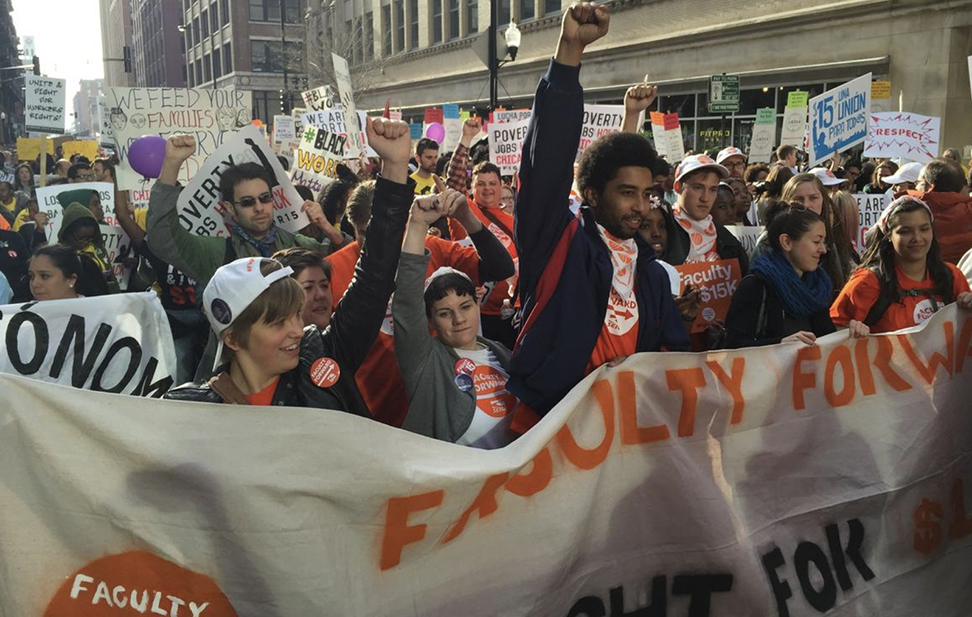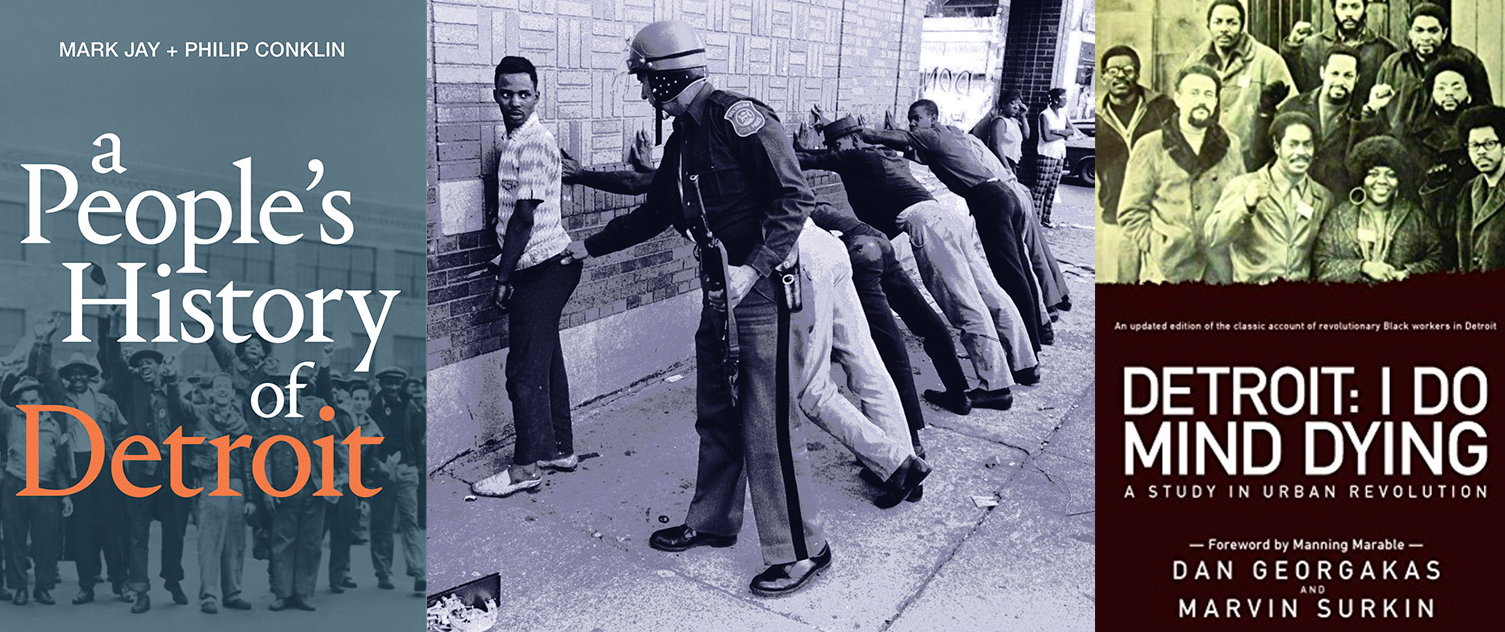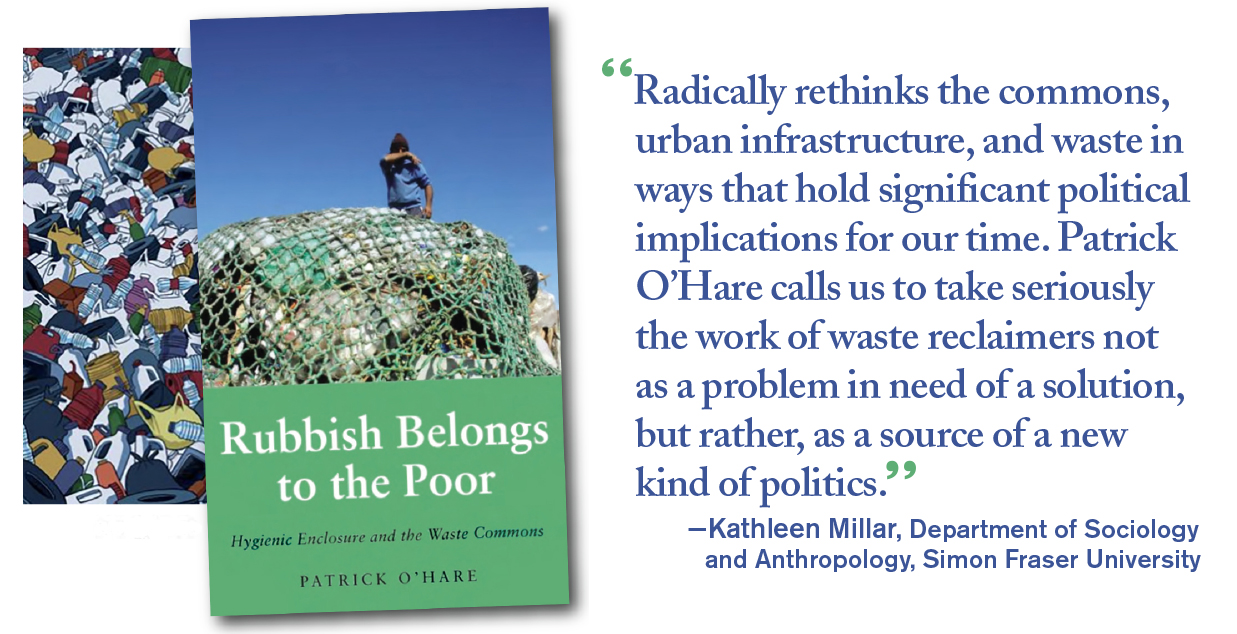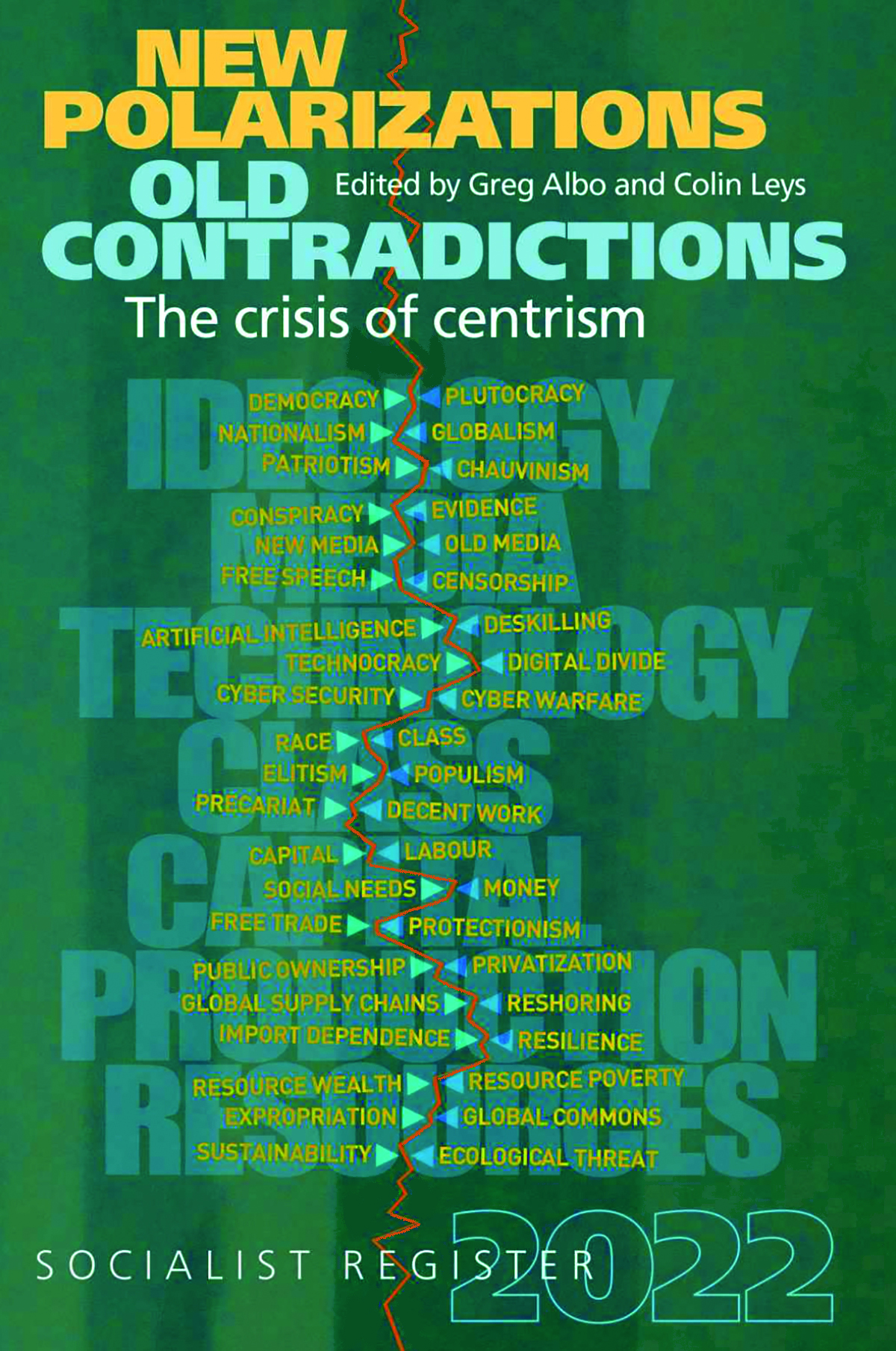Austerity
A People’s History of Detroit
Online: Zoom link will be provided to registered participantsMark Jay and Philip Conklin outline the complex sociopolitical dynamics underlying major events in Detroit's past, from the rise of Fordism and the formation of labor unions, to deindustrialization and the city's recent bankruptcy. They demonstrate that Detroit's history is not a tale of two cities—one of wealth and development and another racked by poverty and racial violence; rather it is the story of a single Detroit that operates according to capitalism's mandates.
Power Despite Precarity
Online: Zoom link will be provided to registered participantsPower Despite Precarity is part history, part handbook and a wholly indispensable resource in this fight. Joe Berry and Helena Worthen outline the four historical periods that led to major transitions in the work-lives of faculty of this sector. They then take a deep dive into the 30-year-long struggle by California State University lecturers to negotiate what is recognized as the best contract for contingents in the US.
A People’s History of Detroit and Detroit, I Do Mind Dying
In A PEOPLE’S HISTORY OF DETROIT, Mark Jay and Philip Conklin use a class framework to tell a sweeping story of Detroit from 1913 to the present, embedding Motown’s history in a global economic context DETROITL I DO MIND DYING tracks the extraordinary development of the Dodge Revolutionary Union Movement and the League of Revolutionary Black Workers
A People’s History of Detroit and Detroit, I Do Mind Dying
In A PEOPLE’S HISTORY OF DETROIT, Mark Jay and Philip Conklin use a class framework to tell a sweeping story of Detroit from 1913 to the present, embedding Motown’s history in a global economic context DETROITL I DO MIND DYING tracks the extraordinary development of the Dodge Revolutionary Union Movement and the League of Revolutionary Black Workers
Rubbish Belongs to the Poor
Rubbish. Waste. Trash. Whatever term you choose to describe the things we throw away, the connotations are the same; of something dirty, useless and incontrovertibly 'bad'. But does such a dismissive rendering mask a more nuanced reality? In RUBBISH BELONGS TO THE POOR Patrick O'Hare journeys to the heart of Uruguay’s waste disposal system in order to reconceptualize rubbish as a 21st century commons, at risk of enclosure.
After the Pandemic: Rebuilding the Medicare for All Movement
The Covid crisis drove home both the absurdity of linking healthcare to employment and the importance of treating healthcare as a decommodified public good. But the politics of the emerging post pandemic period are not conducive to big, transformative initiatives like Medicare for All.
Socialist Register 2022 — Polarization and Socialism: The Direction Forward
It is a truism that electoral politics and political identity in the USA and Europe today are polarized to a degree unknown since the 1930s. It is a commonplace among the pundits of the ruling class that somehow “both sides” must return to “moderate” common sense to avoid a violent rupture of our society. They seldom question the underlying causes of this polarization, let alone whether it is rooted in the very nature of late capitalism.
This is not the case with the contributors to the 58th volume of Socialist Register. From different perspectives, they ask us to think about the deep social contradictions exposed by increasing polarization of the most economically developed societies along lines of wealth, race, gender, nation-state, and region. Members of this class meet once each month for four months to discuss selected articles from SR 58 with editor Greg Albo, joined by various authors organized around the following themes on one Sunday a month from March 20 through May 115, 2022. The recording of the February 20 session is available by writing to info@marxedproject.org
Socialist Register 2022 — Polarization and Socialism: The Direction Forward
It is a truism that electoral politics and political identity in the USA and Europe today are polarized to a degree unknown since the 1930s. It is a commonplace among the pundits of the ruling class that somehow “both sides” must return to “moderate” common sense to avoid a violent rupture of our society. They seldom question the underlying causes of this polarization, let alone whether it is rooted in the very nature of late capitalism.
This is not the case with the contributors to the 58th volume of Socialist Register. From different perspectives, they ask us to think about the deep social contradictions exposed by increasing polarization of the most economically developed societies along lines of wealth, race, gender, nation-state, and region. Members of this class meet once each month for four months to discuss selected articles from SR 58 with editor Greg Albo, joined by various authors organized around the following themes on one Sunday a month from March 20 through May 115, 2022. The recording of the February 20 session is available by writing to info@marxedproject.org
From Austerity to Fascism: The Capital Order
Recording available on YouTubeIn The Capital Order, Clara E. Mattei explores the intellectual origins of austerity to uncover its originating motives: the protection of capital-and indeed capitalism - in times of social upheaval from below. Drawing on newly uncovered archival material from Britain and Italy, she offers a damning account of the rise of austerity - and of modern economics - at the levers of contemporary political power. Mattei reveals how the threat of working-class power in the years after World War I animated top-down economic policies that elevated owners, smothered workers, and imposed a rigid economic hierarchy across societies.
Trump, the State, and Global Capital
Recording available on YouTubeLooking at the early weeks of the Trump regime through a Marxists lens presents a major challenge, but who better to meet it than Steve Maher and Clara Mattei, whose historical analyses of finance capital and the capitalist state have garnered well-deserved praise. Join us as we engage Steve and Clara in an open-ended conversation aimed at bringing some clarity to the burgeoning chaos that is shaking up U.S. and global capitalism and the imperialist state system.







